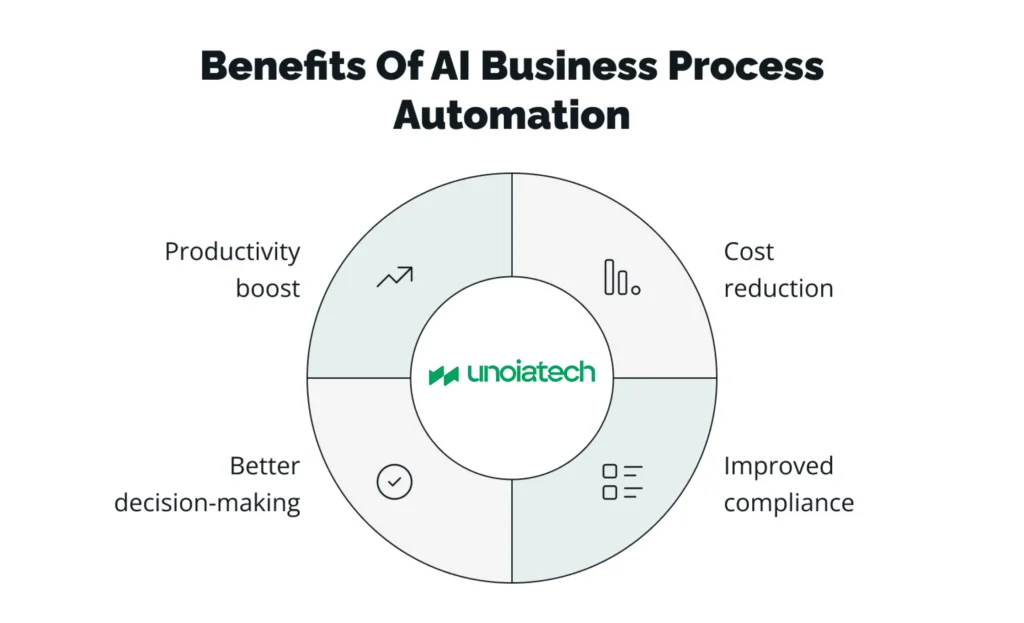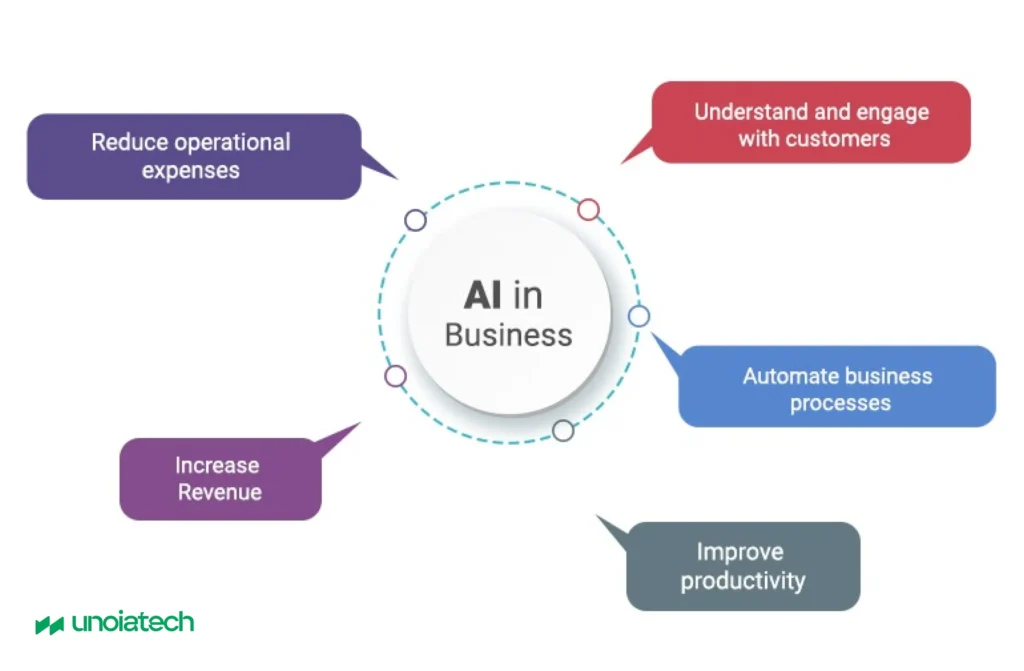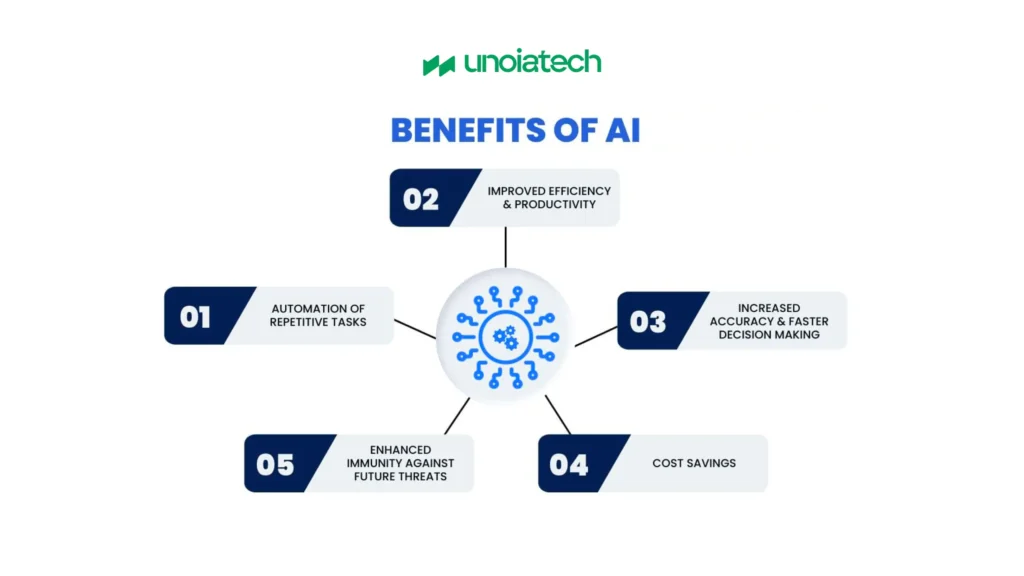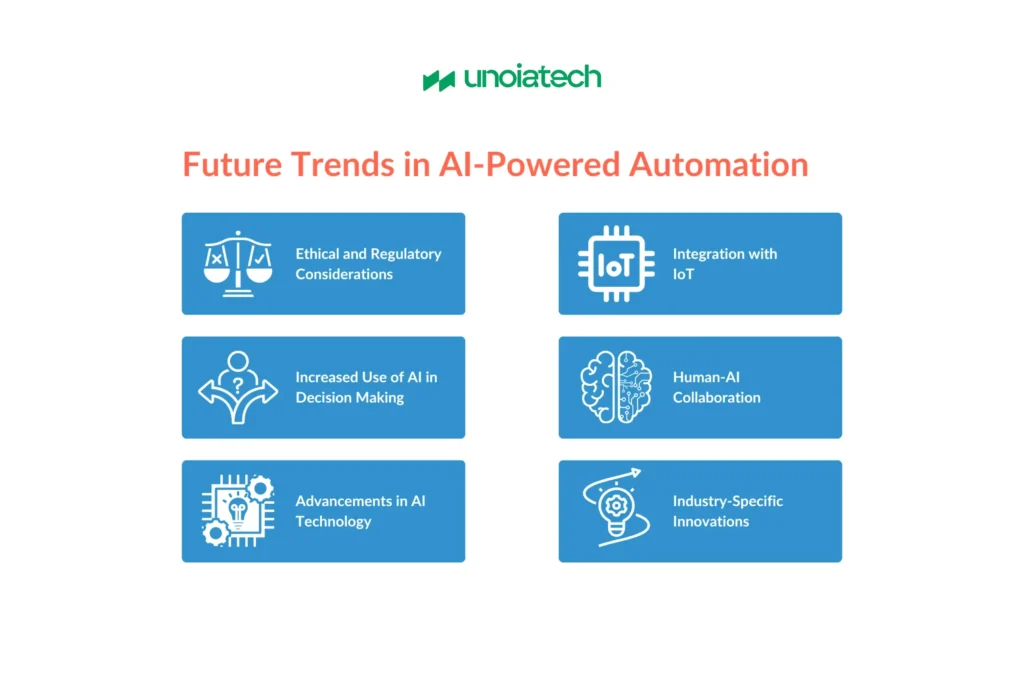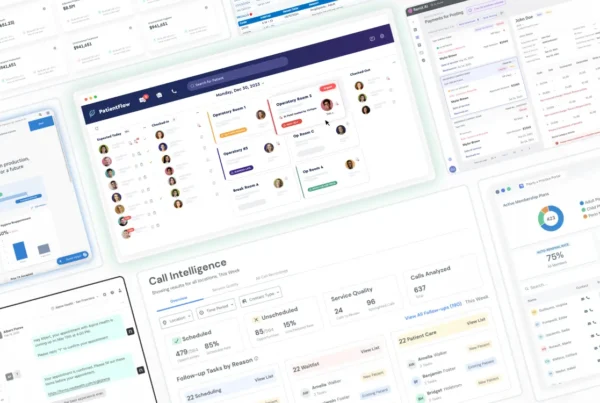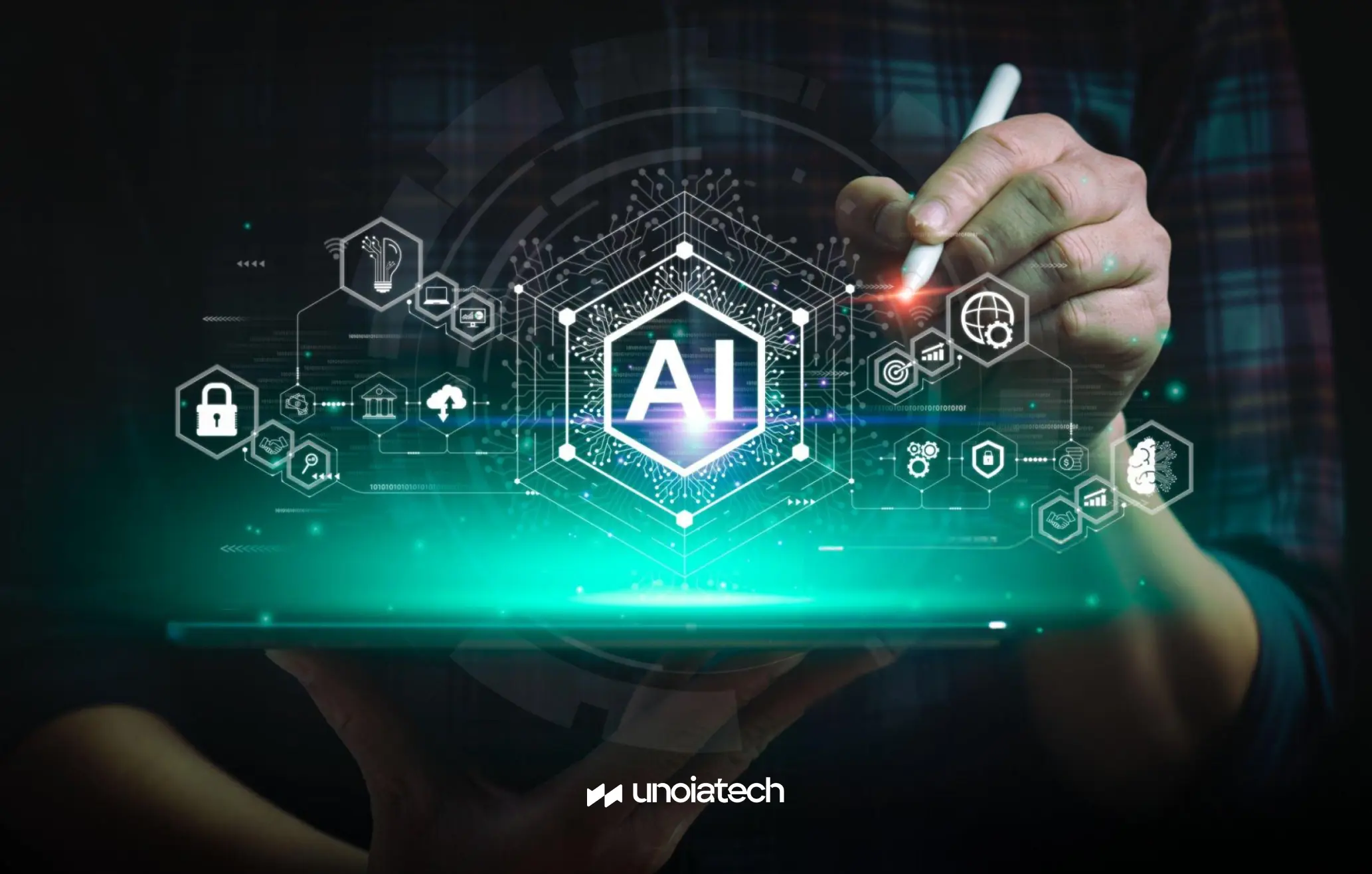
Did you know that AI in business process automation can boost business productivity by up to 30% while cutting operational costs by 20-40%? According to McKinsey, these impressive statistics highlight the transformative power of AI. Yet, many organizations still underutilize AI, missing out on its potential to streamline operations and enhance efficiency.
The pressing question is: Is your business ready to harness the benefits of AI automation? If you’re unsure how AI fits into your business model, this article will guide you through the transformation process.
By the end of this article, you’ll be equipped with insights into how AI in business process automation can drive efficiency and success.
Understanding AI in Business Process Automation
AI in business process automation refers to the use of advanced technologies to streamline and enhance various operational processes. AI leverages machine learning, natural language processing, and data analytics to automate repetitive tasks, improve accuracy, and facilitate better decision-making.
But what does that mean for your company? Here are some of the key components:
- Automation of Routine Processes: AI can take over repetitive tasks, freeing your employees to focus on more strategic and high-value activities. This leads to increased productivity and morale.
- Improved Decision-Making: With access to real-time data and predictive analytics, AI provides insights that enhance decision-making. Businesses can respond more quickly to market changes and customer needs.
- Error Reduction: AI systems minimize human error, ensuring processes are completed correctly the first time, which is especially vital in areas like inventory management and compliance.

The Role of AI in Business Process Automation
The impact of AI in business process automation is profound. It powers various operations like inventory management, demand forecasting, and supplier relations. Here’s a deeper dive into how AI can help:
- Demand Forecasting: AI uses historical data and market analysis to accurately predict future demand, enabling businesses to adjust inventory levels proactively. This minimizes the risk of overstocking or stockouts, optimizing inventory turnover.
- Resource Allocation: AI algorithms assess how resources such as storage space, personnel, and transportation can be allocated most effectively, cutting waste and improving operational efficiency.
- Real-time Updates: AI offers real-time tracking of inventory and processes, allowing businesses to stay informed and respond promptly to changes or issues.
- Supplier Relations Management: By analyzing supplier performance data, AI can recommend the best suppliers and negotiate favorable terms, which leads to cost savings and stronger relationships.

Key Benefits of AI-Driven Automation
Integrating AI in business process automation offers several compelling benefits, including:
- Increased Efficiency: AI streamlines repetitive tasks, ensuring they’re done faster and with greater accuracy. For instance, automating order processing can significantly reduce lead times in supply chains.
- Cost Reduction: By automating tasks, businesses can lower labor costs and reduce operational expenses. AI helps optimize inventory levels, minimizing excess stock and storage costs.
- Enhanced Decision-Making: AI processes vast datasets, delivering insights that might be overlooked by human analysis. This aids in real-time decision-making across the supply chain.
- Scalability: As your business grows, AI solutions can easily scale to meet increasing demands without compromising on quality or consistency.
- Improved Customer Experience: By predicting customer needs and optimizing product availability, AI ensures that customers receive timely and personalized service.

Real-World Applications of AI Automation
AI isn’t just a theoretical concept; it’s driving real results across industries. Here are some practical applications of AI in business process automation:
- Demand Forecasting: AI can analyze historical sales data, market trends, and external factors like weather events to predict future customer demand, enabling businesses to optimize stock levels.
- Resource Allocation: AI systems can identify optimal staffing levels and storage capacities, ensuring efficient use of resources and reducing costs.
- Supplier Management: AI evaluates supplier performance and suggests the best options based on historical data, leading to smoother operations and better pricing strategies.
- Automating Routine Tasks: AI handles mundane tasks like invoice processing and data entry, allowing human resources to focus on strategy and innovation.
- Data Analytics: AI-powered analytics tools provide deep insights into customer behavior and operational efficiency, helping businesses adapt and thrive in a competitive landscape.
Challenges of Implementing AI and Solutions
While AI in business process automation is transformative, implementing AI-driven solutions comes with challenges:
- Knowledge and Training: Your team must understand how to leverage AI effectively. Providing comprehensive training can bridge this knowledge gap.
- Data Quality: AI thrives on data, and ensuring that your data is accurate, clean, and well-structured is essential for success.
- Integration Issues: Integrating AI into existing systems can be complex. Collaborating with experts and choosing compatible solutions can ease this process.
- Cost Concerns: The initial investment in AI technologies can be daunting. Conducting a detailed cost-benefit analysis can justify the expense and highlight potential long-term savings.
- Resistance to Change: Some employees may be hesitant to adopt AI, fearing job displacement. Clear communication about AI’s benefits and roles can help mitigate these concerns.
Security and Compliance Considerations
Security and compliance are paramount when using AI in business process automation. Here are some key considerations:
- Data Protection: Safeguarding sensitive data is crucial. AI relies heavily on data, which must be protected from unauthorized access and breaches.
- Privacy Regulations: Ensure compliance with laws like GDPR or HIPAA, which dictate how personal data is collected and used.
- Encryption and Access Control: Implementing strong encryption protocols and access controls can protect sensitive data from breaches.
- Regular Audits: Conduct periodic security audits to identify vulnerabilities and ensure compliance with data protection regulations.
Future Trends in AI Automation
The future of AI in business process automation holds exciting developments that will reshape how businesses operate. Here are some trends to watch:
- Enhanced Predictive Analytics: AI will become even better at forecasting demand and optimizing resource allocation.
- Autonomous Systems: AI-powered systems will manage inventory and operations with minimal human intervention, optimizing efficiency further.
- Sustainability Initiatives: AI will aid in creating eco-friendly operations, helping businesses reduce waste and minimize their carbon footprint.
- Personalized Customer Experiences: AI will enable businesses to deliver tailored experiences, improving customer satisfaction and loyalty.
- AI Ethics and Regulations: As AI becomes more integrated into business operations, the focus on ethical considerations and compliance with regulations will intensify.

Conclusion: The Time to Embrace AI Automation Is Now
AI-driven business process automation represents a massive opportunity for companies looking to gain a competitive edge. By incorporating predictive analytics, intelligent decision-making, and hyper-automation, organizations can achieve unprecedented levels of speed, quality, and efficiency.
However, successfully implementing AI solutions requires a willingness to embrace change, rethink processes, and cultivate an automation-first culture. Partnering with experts can facilitate this transition, helping businesses unlock the full potential of AI.
The future shaped by AI in business process automation has immense potential. Companies that lead this shift today will propel their industries tomorrow. The time to start your AI journey is now!
About Unoiatech
At Unoiatech, we specialize in AI-powered automation technologies designed to revolutionize shared team inboxes and document processing workflows, including order workflows. Our focus is on mid-market companies within the supply chain and finance sectors, helping streamline operations through intelligent automation. By blending deep industry insights with cutting-edge AI solutions, we’re committed to transforming how businesses manage documents, customer interactions, and more—ensuring efficiency, accuracy, and scalability at every step.


